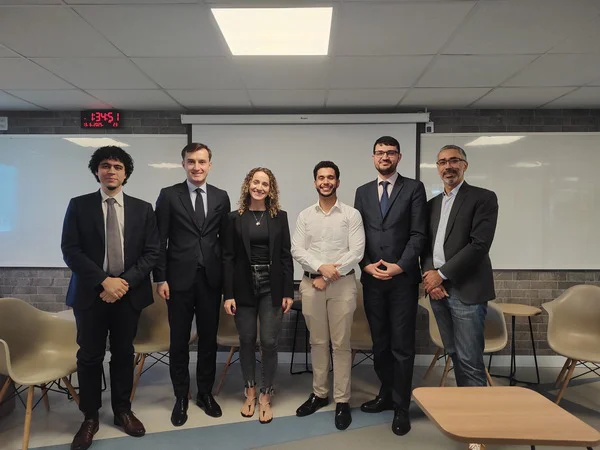The recent academic meeting hosted on June 13th at the Brazilian Institute of Education, Development, and Research (IDP), in collaboration with the International Security Research Group, the Embassy of Ukraine to Brazil and the Transatlantic Dialogue Centre (TDC). The primary objective of the meeting was to foster a comprehensive and critical dialogue on the ongoing geopolitical situation in Ukraine, with a particular focus on the pervasive challenge of disinformation and its impact within the Latin American region. The discussions served as a crucial platform for deepening mutual understanding and strengthening academic and diplomatic relations between the participating institutions.

Agenda and Key Discussion Points
The meeting was structured around a series of critical themes designed to dissect the complexities of the current geopolitical climate. The discussions covered:
- The Current Geopolitical and Humanitarian Situation in Ukraine: An in-depth analysis of the ongoing war and its regional and global ramifications.
- The Pervasive Issue of Disinformation and Propaganda: An examination of the strategic deployment of disinformation by the Russian Federation, particularly its targeted campaigns within the Latin American region.
- Deconstructing Misconceptions and Narratives: A critical analysis of the foundational myths and false justifications propagated by the Russian state regarding the origins and causes of the invasion.
- The Factual Context of the Invasion: A presentation of the evidence-based and verifiable causes behind Russia’s full-scale invasion of Ukraine.
- Linguistic and Media-Specific Disinformation: A focused discussion on how platforms like “Russia Today” utilize the Portuguese language to disseminate misleading information, and the resulting impact on public perception.
The dialogue highlighted a critical need for accessible, factual information. Participants from the Brazilian academic community acknowledged the challenge of combating disinformation, noting that despite three years since the full-scale invasion, public understanding of the conflict remains hindered by preconceived notions and a lack of access to direct, reliable sources. A key finding was the strategic targeting of BRICS nations with propaganda, which leverages existing relationships to simplify the dissemination of pro-Russian narratives.